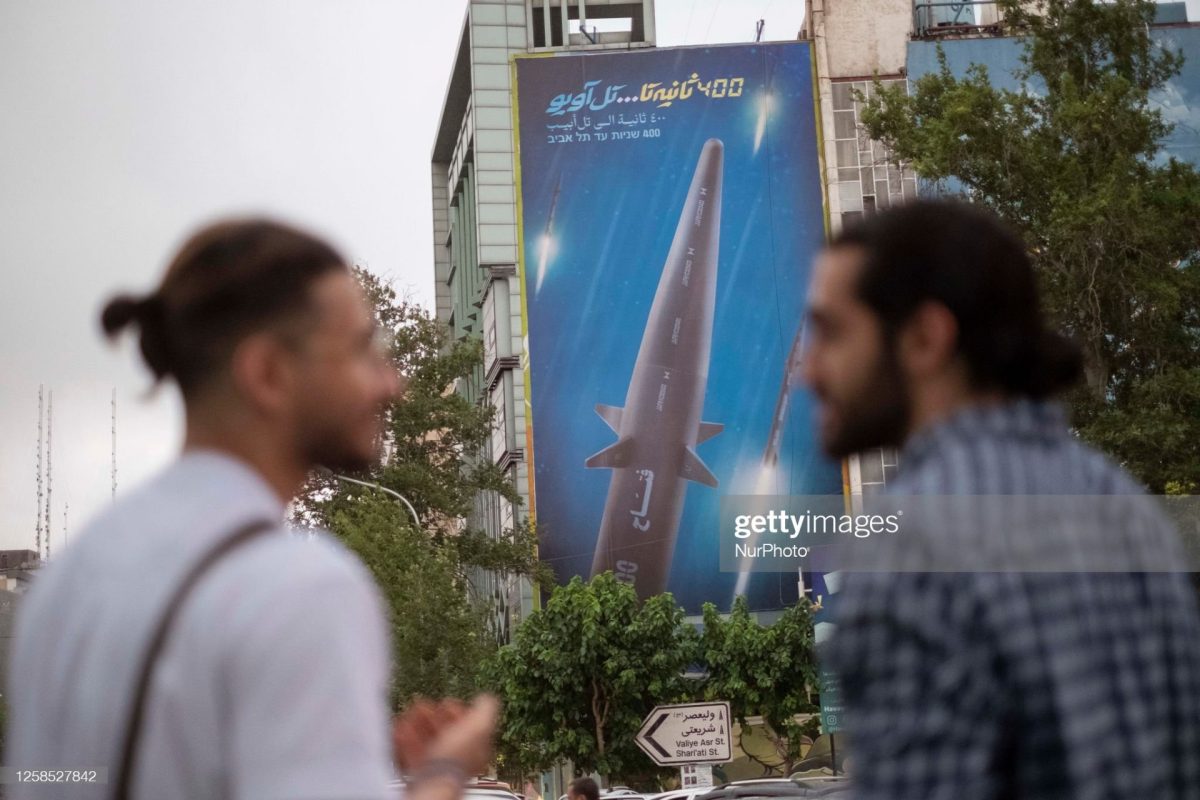The sources cited three reasons for keeping the sanctions: “Russia’s use of Iranian drones against Ukraine”; “the possibility Iran might transfer ballistic missiles to Russia”; and “depriving Iran of the nuclear deal’s benefits given Tehran has violated the accord, albeit only after the United States did so first”.
Both Iran and Russia have repeatedly denied claims that Tehran has provided Moscow with drones to be used in the war in Ukraine.
Keeping the EU sanctions would reflect Western efforts to prevent Iran from developing nuclear weapons and the means to deliver them despite the collapse of the 2015 agreement, which then-U.S. President Donald Trump abandoned in 2018.
Tehran has repeatedly stated that it has no intention of developing nuclear weapons, with Iranian Supreme Leader Ayatollah Ali Khamenei even issuing religious edicts against the atom bomb and other weapons of mass destruction.
“The Iranians have been told quite clearly (of plans to keep the sanctions) and now the question is what, if any, retaliatory steps the Iranians might take and (how) to anticipate that,” said a Western diplomat on condition of anonymity.
The EU sanctions are set to expire on Oct. 18 under a U.N. resolution that enshrined the 2015 nuclear deal.
They “called upon” Iran not to do anything to develop ballistic missiles that could carry nuclear weapons, a phrase urging Iran not to do so but short of a mandatory prohibition.
They also barred anyone from buying, selling or transferring drones and their components capable of flying more than 300 km (186 miles) to or from Iran without prior authorization from the U.N. Security Council, permission that has not been granted.
It was not clear whether the E3, a group comprised of Britain, France and Germany, told Iran of their intent to retain the EU sanctions when their senior officials met Iran’s chief nuclear negotiator Ali Bagheri Kani on June 12 in Abu Dhabi.
EU diplomat Enrique Mora, who co-ordinates talks on the 2015 deal, raised the issue of keeping the EU sanctions when he met Bagheri Kani in Doha on June 21, but the Iranian official refused to discuss the matter, an Iranian official told Reuters on condition of anonymity.
A second Iranian official brushed off the possibility of the sanctions remaining, stating Tehran had advanced its nuclear and missile programs for years despite Western sanctions.
“Maintaining sanctions, in any capacity and form, will not hinder Iran’s ongoing advancements,” said this Iranian official, also on condition of anonymity.
“It serves as a reminder that the West cannot be relied upon and trusted,” the official added.
Britain’s foreign ministry did not comment on whether the E3 planned to keep the sanctions or had told Iran of any decision.
However, a British foreign ministry spokesperson said the June 12 talks in Abu Dhabi “covered the range of our concerns about Iran’s behaviour, including its continued nuclear escalation.”
France and Germany’s foreign ministries have made similar comments about those talks.
A European diplomat stated Mora had started laying the legal groundwork to retain the sanctions, which would have to be approved by all 27 EU members. Two sources said the issue had not yet been discussed among all EU states.
“The lifting of sanctions was based on the principle that 2231 would be respected,” this diplomat said, referring to the U.N. Security Council resolution that enshrined the 2015 deal.
“That has not been the case, so there is a discussion with the Iranians to make clear that we won’t lift these sanctions,” they added.
EU Spokesperson Nabila Massrali said the JCPOA sets out in some detail the commitments of different participants on the so-called Transition Day which was still several months away (Oct. 18).
“We will provide further information on EU related aspects in due course,” she added in response to detailed questions by Reuters.
Under the 2015 nuclear agreement, any party could trigger the “snapback” or return of all sanctions that it removed. Most U.S. sanctions were restored after Trump left the deal.
However, three sources stated that the E3 did not wish to do this chiefly because it would undercut a threat conveyed in a letter from their foreign ministers to Iran last year that they would trigger “snapback” if Iran enriched uranium to weapons-grade.
Iranian officials say the country’s missile activities are conventional, defensive and totally legitimate in accordance with international law.
Tehran has stressed that some western countries, which have themselves a long and clear record in trampling on their own international obligations in various fields such as nuclear tests, the non-proliferation regime, hosting nuclear missiles, and playing a destructive role in regional and international relations, do not have the right to comment on the Islamic Republic’s legitimate and totally lawful defense capabilities.
Iran has cautioned the United States that the window of opportunity for an agreement on reviving the nuclear deal will not remain open forever, urging Washington to adopt a constructive approach to salvage the accord.
Iran showed to the world the peaceful nature of its nuclear program by signing the Joint Comprehensive Plan of Action (JCPOA) with six world states — namely the U.S., Germany, France, Britain, Russia and China. But, Washington’s unilateral withdrawal in May 2018 and its subsequent re-imposition of sanctions against Tehran left the future of the deal in limbo.
Negotiations between the parties to the landmark agreement kicked off in Vienna in April 2021, with the intention of bringing the U.S. back into the deal and putting an end to its “maximum pressure” campaign against Iran.
The discussions, however, have been at a standstill since August 2022 due to Washington’s insistence on not lifting all of the anti-Iran sanctions and offering the necessary guarantees that it will not exit the agreement again.
